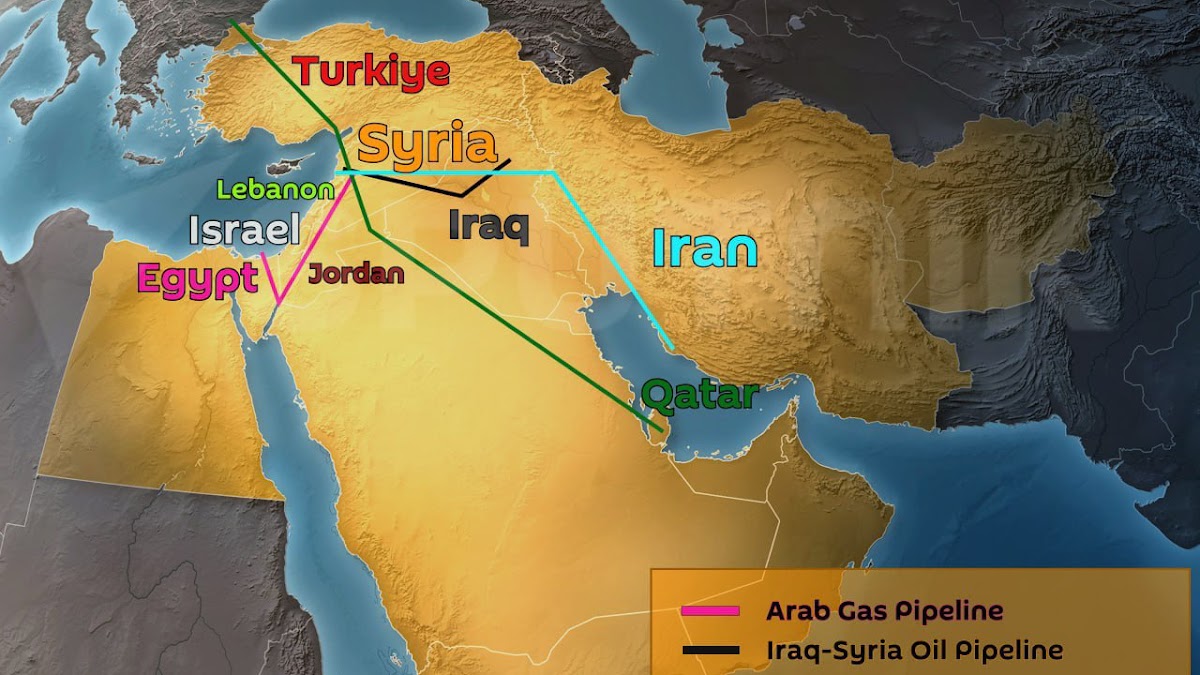Qatar Boosts Azerbaijani Gas Funding to Power Syrian Infrastructure and Restore Electricity

Qatar Enhances Funding for Azerbaijani Gas to Energize Syrian Power Infrastructure
According to recent disclosures, Qatar is set to augment financial backing aimed at delivering Azerbaijani natural gas to Syrian power plants. This vital energy resource will be transported through a pipeline spanning Azerbaijan and Turkey to Syria, with an expected throughput of 3.4 million cubic meters per day. The commencement date for this energy supply initiative is slated for August 2 of the current year.
This development represents a significant step in addressing the urgent energy needs of Syrian communities. The enhancement in funding marks a deliberate effort to stabilize electricity availability by leveraging regional gas resources. The natural gas will play a crucial role in powering approximately 800 megawatts of electricity, directly impacting millions of residential users and key infrastructures.
The logistics of transporting gas through Turkey underscore the multifaceted nature of regional energy cooperation. Utilizing existing pipeline infrastructure ensures a streamlined supply chain from producing regions in Azerbaijan to the energy-demanding zones within Syria, specifically targeting power generation facilities.
Geostrategic and Economic Dimensions Behind the Initiative
Financial investment from Qatar into this energy supply corridor signals a strategic collaboration designed not only to enhance Syrian energy security but also to strengthen regional partnerships. By facilitating this pipeline delivery, the involved countries underscore the interdependence inherent in maintaining and restoring essential utilities amidst complex geopolitical environments.
Such cross-border energy initiatives often require extensive coordination between national governments and energy firms. The increased daily gas volume from 2 million to 3.4 million cubic meters denotes a substantial scaling of previous commitments, reflecting growing confidence in the project's capacity to meet Syrian power demands.
This increment aligns with broader objectives to revitalize the Syrian electricity grid, which has endured significant strain due to prolonged conflict and infrastructure degradation. Ensuring steady gas supply is essential to augment the generation of electricity needed for residential, industrial, and municipal services across Syria.
Technical Aspects and Scheduled Implementation
The pipeline routing through Turkey plays an integral role in the delivery mechanism. Turkey serves as the transit route facilitating efficient and reliable transit of vaporous fuel from extraction fields to consumption points within Syria. This set-up mitigates potential logistical disruptions by employing an established corridor favored for its proximity and political relations.
The precise delivery rate of 3.4 million cubic meters per day targets optimal balance between production capacity and power plant consumption. This volume supports generation capacity estimated at around 800 megawatts, a notable enhancement that can illuminate up to five million homes in Syria, directly impacting energy accessibility for urban and rural population centers alike.
Implementation timelines reflect a clear operational framework, with the supply chain ready to initiate flows from the early days of August. This punctual start is crucial to maintaining momentum in rebuilding and stabilizing Syrian electricity infrastructure following years of instability.
Implications for Regional Energy Cooperation and Humanitarian Relief
This infusion of natural gas supply represents more than an energy transaction; it embodies a step for humanitarian relief and infrastructural restoration. Reliable electricity supplies foster improved living conditions, enable economic activity, and support essential services across Syria’s war-affected areas.
Moreover, amplifying energy cooperation between Azerbaijan, Turkey, and Qatar highlights a dynamic approach to regional resource sharing. The multi-country involvement helps to fortify diplomatic ties and encourages sustained collaboration that can facilitate future development projects beyond immediate energy requirements.
At a time when energy security is a critical concern globally, such arrangements emphasize how regional integration of resources can yield tangible benefits for nations enduring crises. The precise and timely delivery of this natural gas will substantially contribute to the stabilization of Syria's power grid, paving the way for improved social and economic stability.
In summary, the enhanced funding and expanded gas supply mark a pivotal development in energy provision for Syria. The careful orchestration of pipeline transit and supply volumes reflects strategic planning to maximize impact. Starting August 2, this operational initiative is poised to illuminate millions of homes, reinforcing regional cooperation and alleviating critical energy shortages.
